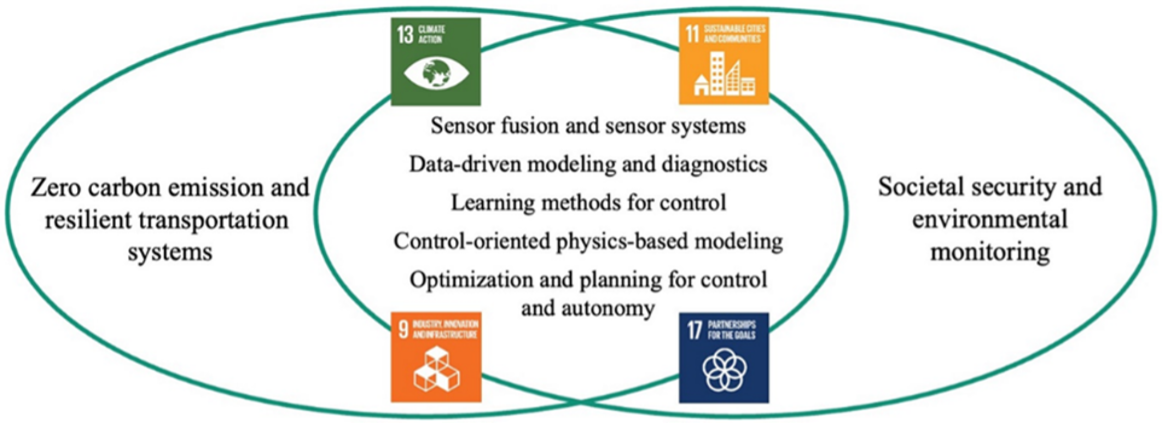Research
Focus areas of SEDDIT’s research
Today, climate change and global stability and security are two of the most urgent global challenges facing the world. Digital transformation is critical to address these challenges as it enables environmental, economic, and governance actions to be based on reliable and up-to-date information.

Focus areas
The activities within SEDDIT will be focused on two focus areas:
Zero carbon emission and resilient transportation systems
and
Societal security and environmental monitoring
Zero carbon emission and resilient transportation systems
The activities within SEDDIT will contribute to the global efforts of achieving efficient land transportation systems and minimizing negative environmental impacts in line with the Sustainable Development Goals (SDGs) 9, 11, and 13. These SDGs concern sustainable industrialization and innovation, efforts to mitigate climate change, and a sustainable transport system where the SEDDIT research activities are focused primarily on methods that can improve the utilization and efficiency of transportation systems, including both personal cars and heavy vehicles.
Based on the needs called for in the SDGs 9, 11, and 13, the clearest direction of innovation emerging as response to the challenges contain electrification, where more components in the vehicles are electrified to provide more flexibility and opportunities for optimization of the system and its operation. Furthermore, the whole area of electromobility, with electric powertrains powered by batteries or fuel cells, also emerge as important pieces to reach sustainability. All these technologies rely on control and monitoring systems.
Societal security and environmental monitoring
We are living in a time with great challenges related to societal security and environmental monitoring (SDGs 11 and 13) and the SEDDIT research will address these challenges by proposing new systems and methods to enable a digital transformation in these areas. Technical development during recent years has resulted in increased computational capability, novel sensor solutions, high-capacity communication systems with excellent availability, and long-range mobile platforms that provide a foundation for a digital transformation of these areas.
However, a significant transformation will only take place if academia and industry can develop methods and systems that combine these tools for the purpose of extracting reliable information from sensor data and for making accurate decisions and taking relevant actions based on this information. SEDDIT will address challenges related to security and environmental monitoring in the air, on the ground and underwater. These applications are aligned with SDGs 11 and 13, which concern safe, resilient, and sustainable communities, sustainable transport, disaster risk reduction, and efforts to mitigate climate change.
